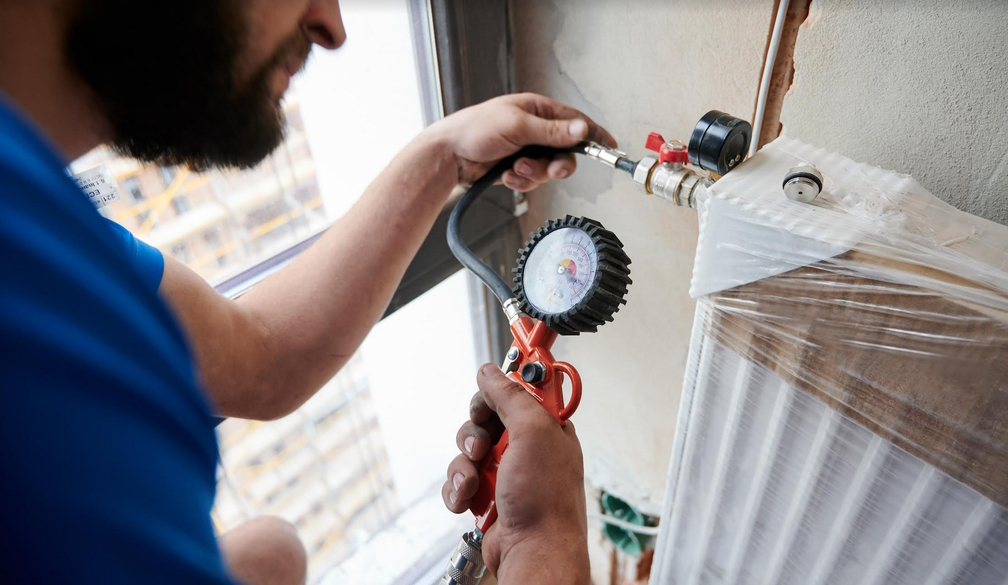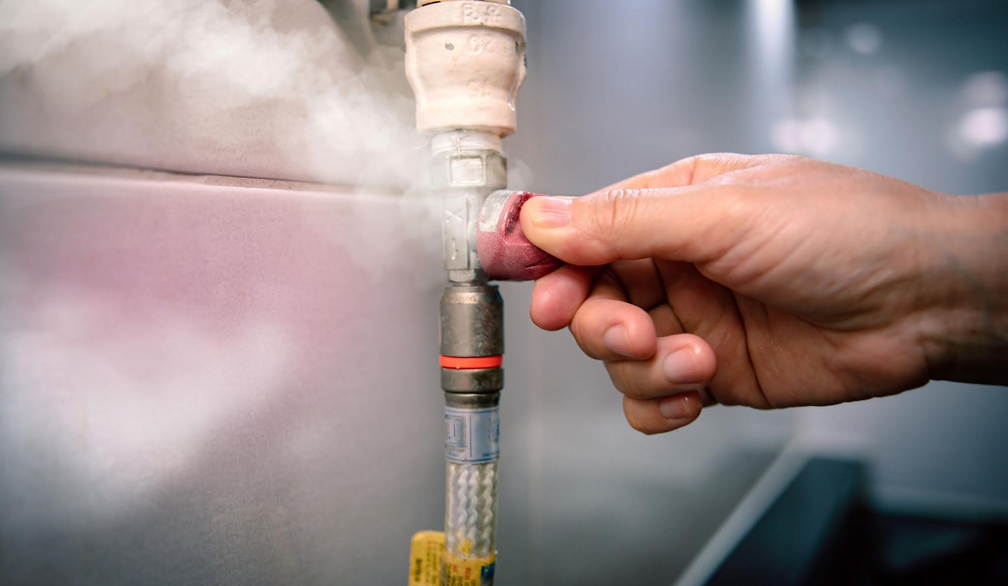Do Plumbers Fix Gas Leaks?

Natural gas is the most common gas used in commercial and domestic kitchens. Its primary purpose is cooking, but it can also come in handy in ducted heating systems and water heater operations. The fact that it’s clean and sustainable makes it an excellent source of energy.
However, it can be fatal if it’s not well-contained. For one, it may lead to fire accidents, resulting in loss of property or even lives. Improper containment could also mean there is a likelihood of anyone in your home inhaling this gas. This could result in respiratory issues and other health complications.
Therefore, you must attend to a gas leak as soon as you realize it. But how will you know there’s a problem, and who should you call? This article will answer these questions.
How To Detect A Gas Leak
Detecting gas leakage is a must-have skill for every homeowner. Here is how you know there’s a leak in your home’s gas supply system:
-
A Smell Of Rotten Eggs
You’ll likely smell something like rotten eggs, sulphur, or sewage whenever there’s a gas leakage. This is not the original smell of natural gas because, like propane, they’re odourless.
However, this makes it difficult for users to detect any leakage, which can be dangerous. As such, companies add a harmless odorant called mercaptan. This gives odourless and colourless gases a distinctive smell.
So, whenever you detect any smell that resembles rotten eggs, use that as a sign of a gas leak. Take the necessary precautions, including closing the main valve and removing any fire source.
-
Hissing Sound
Another thing that suggests the possibility of a gas leak is a hissing sound around your gas lines. This may signify a substantial leak. It can result from gas escaping from a faulty valve, a crack, or a hole in your pipeline.
It’s best to investigate the source of the whistling sound as soon as you hear it. Any delay in responding to this fault may be catastrophic.
Of course, if a rotten egg smell accompanies the sound, that’s the confirmation you need. Your immediate step should be to close the main valve, if possible, and then immediately call the gas company or a professional plumber.
As you wait for the emergency response, don’t use anything that can spark. Using electric switches, lighters, or match sticks can cause an explosion.
-
Dead Plants
It’s not easy to detect faulty underground gas lines. But nature can save you here if you’re keen. A significant patch of dead vegetation may suggest a gas leak underneath the soil. In such a case, it’s best to contact a gas company as soon as possible so they can confirm the state of the gas line.
Remember that some signs may not necessarily point toward a gas leak. So, investigate thoroughly and take the required precautions before making the next move.
Can Plumbers Fix Gas Leaks?
If your findings above are affirmative, you may need to look for a professional to repair the fault. But can a plumber help you in this situation?
Whenever these professionals are mentioned, the first things that many people think about are sewer and water lines. However, plumbers are also qualified to deal with dangerous faults like gas leaks.
Although there are some actions you can take in case of a gas line fault, this is something you shouldn’t attempt to fix. It’s always recommended that you call a plumber if they’re located closer to you than the gas company.
Given the dangers associated with this problem, it’s better to get the quickest help possible. The plumber can then fix the issue or ensure safety as you wait for the gas company to respond.
It’s worth noting that calling a plumber depends on the leak’s location. A licensed plumber can work on it if it’s along the line connecting the meter to your property.
However, if it’s on the opposite side of the meter, the gas company is responsible for the repairs. The company’s technicians should be the first people you call in such a scenario to avoid unnecessary costs.
Conclusion
Natural gas is essential in any home because it’s an affordable and sustainable energy source. Besides cooking, it can also be used for water heating and ducted heating systems.
However, leakage of this gas can be fatal if it’s not repaired immediately. If you notice the signs discussed above, directly contact a professional plumber. The gas company is responsible for most of the repairs, but you can call a licensed plumber to solve the same. However, the provider is responsible for any repair costs if the issue is on the line linking the meter to the gas company.






